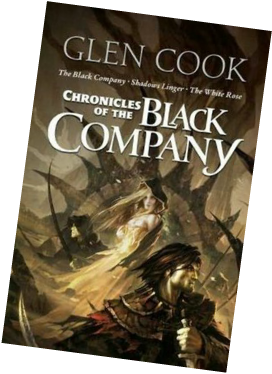
Every once in a while we come across one of those brilliant books which completely redefines the genre it's supposed to depict. The black company series, considered as Glen Cook's masterpiece is one of those, which without a doubt will change your view of fantasy novels and will introduce readers to a tainted and besmirched world where darkness itself fights against the minions of shadow for survival and the basic human instincts like fear and self preservation triumphs over honour and duty.
Chronicles of the Black Company is the first volume of the series consisting of the first three books. "The Black Company" first published in 1984 deals with the introduction of the black company, an elite band of mercenaries and the last of the free companies of Khatovar. Cook wastes no time in giving away backgrounds for his characters and took readers directly into the middle of a civil war where the black company is hired by the local ruler as his body guard. However, the members of the company realises that their mission is hopeless as they begin losing members everyday and are saved by the arrival of a mystic who promises to assassinate their current employer and free them of their present obligation and serve a new employer. However, the company soon realises that they just jumped into the fire when they figure out that their new employer is none other than "The Soulcatcher," an infamous sorceress under the service of "The Lady" who plans to rule the world by means of her dark sorcery.
The book, written from the point of view of Croaker, the company's physician and annalist, makes it pretty straightforward. Readers are allowed to know only the information Croaker could get his hands on and in many cases, important events like the result of a prominent battle which occurred in a simultaneous timeline are not known until Croaker is informed about them, making the plot extremely thrilling. Although, one might doubt how much a fantasy novel based exclusively on battles can be viewed from a first person point of view but you'll be surprised at the amount of action Croaker gets to be a part of.
The second book "Shadows Linger" released in the same year puts up a rather battle worn black company with their numbers dwindling and yet constantly called out to different regions to exterminate rebellion against the Lady's empire. However, an old evil, the Dominator is stirring in his eternal prison and even the powerful Lady is helpless against his might. She orders her favourite band to travel further north to investigate and extinguish any chance of his reawakening before he gathers his full strength.
Besides Croaker, readers will find a new p.o.v from another character that Cook has created with great detail. Shed, one of the most interesting characters of the book gets almost half the book to himself and acts as a much needed distraction from the constant battles fought by the company.
In "The White Rose " (1985), we find the black company in a perilous situation as they constantly strive for their survival and also support the white rose, who is supposedly the only person who can defeat both the lady and the dominator once and for all.
As mentioned earlier, the plot is one of a kind. Glenn Cook, a veteran of the Vietnam War executes his knowledge of warfare to every detail possible even though the timeline and technology is dramatically different. The story is compassionate in every possible way as the soldiers of the black company constantly question their involvement in such massacres but do their duty to the letter. Even though the writer completed his books without describing too much about the characters, the ones he did prioritise on had finesse and depth. The book constantly jumps from one battle to another and if you're familiar with Steven Erikson's Malazan Book of the Fallen, you'll feel right at home with this series.
Overall, the series does not portray the age old cliché of good against evil, rather Glenn Cook shows his genius by proving that there is no glorious war. Blood is shed on both sides as the number of casualties increase and even the characters you like most can die like a foot soldier on the frontier. The book is a good investment not only as a good read but as a collectible as well.
Chronicles of the Black Company is the first volume of the series consisting of the first three books. "The Black Company" first published in 1984 deals with the introduction of the black company, an elite band of mercenaries and the last of the free companies of Khatovar. Cook wastes no time in giving away backgrounds for his characters and took readers directly into the middle of a civil war where the black company is hired by the local ruler as his body guard. However, the members of the company realises that their mission is hopeless as they begin losing members everyday and are saved by the arrival of a mystic who promises to assassinate their current employer and free them of their present obligation and serve a new employer. However, the company soon realises that they just jumped into the fire when they figure out that their new employer is none other than "The Soulcatcher," an infamous sorceress under the service of "The Lady" who plans to rule the world by means of her dark sorcery.
The book, written from the point of view of Croaker, the company's physician and annalist, makes it pretty straightforward. Readers are allowed to know only the information Croaker could get his hands on and in many cases, important events like the result of a prominent battle which occurred in a simultaneous timeline are not known until Croaker is informed about them, making the plot extremely thrilling. Although, one might doubt how much a fantasy novel based exclusively on battles can be viewed from a first person point of view but you'll be surprised at the amount of action Croaker gets to be a part of.
The second book "Shadows Linger" released in the same year puts up a rather battle worn black company with their numbers dwindling and yet constantly called out to different regions to exterminate rebellion against the Lady's empire. However, an old evil, the Dominator is stirring in his eternal prison and even the powerful Lady is helpless against his might. She orders her favourite band to travel further north to investigate and extinguish any chance of his reawakening before he gathers his full strength.
Besides Croaker, readers will find a new p.o.v from another character that Cook has created with great detail. Shed, one of the most interesting characters of the book gets almost half the book to himself and acts as a much needed distraction from the constant battles fought by the company.
In "The White Rose " (1985), we find the black company in a perilous situation as they constantly strive for their survival and also support the white rose, who is supposedly the only person who can defeat both the lady and the dominator once and for all.
As mentioned earlier, the plot is one of a kind. Glenn Cook, a veteran of the Vietnam War executes his knowledge of warfare to every detail possible even though the timeline and technology is dramatically different. The story is compassionate in every possible way as the soldiers of the black company constantly question their involvement in such massacres but do their duty to the letter. Even though the writer completed his books without describing too much about the characters, the ones he did prioritise on had finesse and depth. The book constantly jumps from one battle to another and if you're familiar with Steven Erikson's Malazan Book of the Fallen, you'll feel right at home with this series.
Overall, the series does not portray the age old cliché of good against evil, rather Glenn Cook shows his genius by proving that there is no glorious war. Blood is shed on both sides as the number of casualties increase and even the characters you like most can die like a foot soldier on the frontier. The book is a good investment not only as a good read but as a collectible as well.
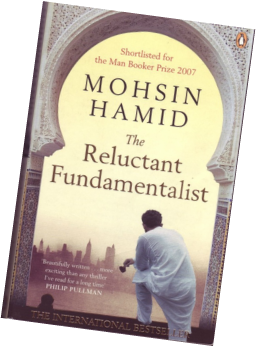
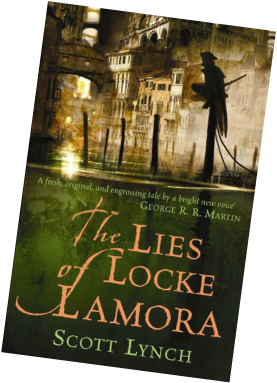
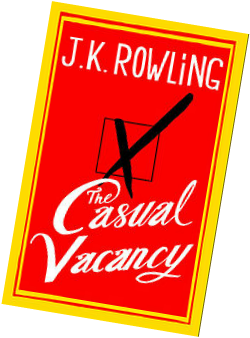
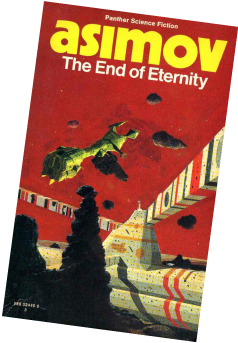
 RSS Feed
RSS Feed